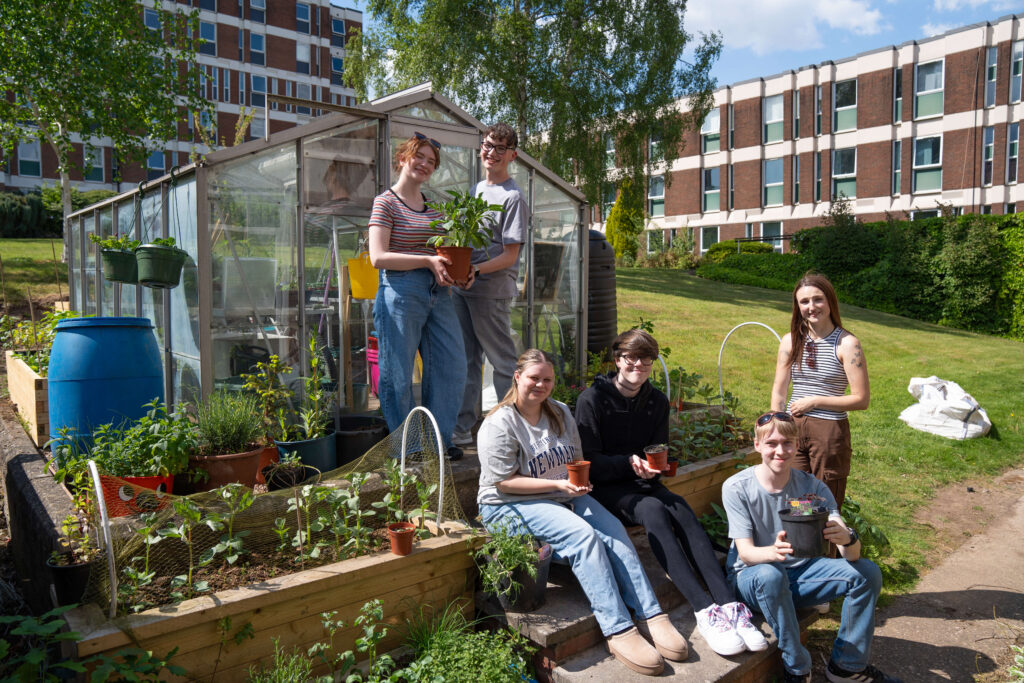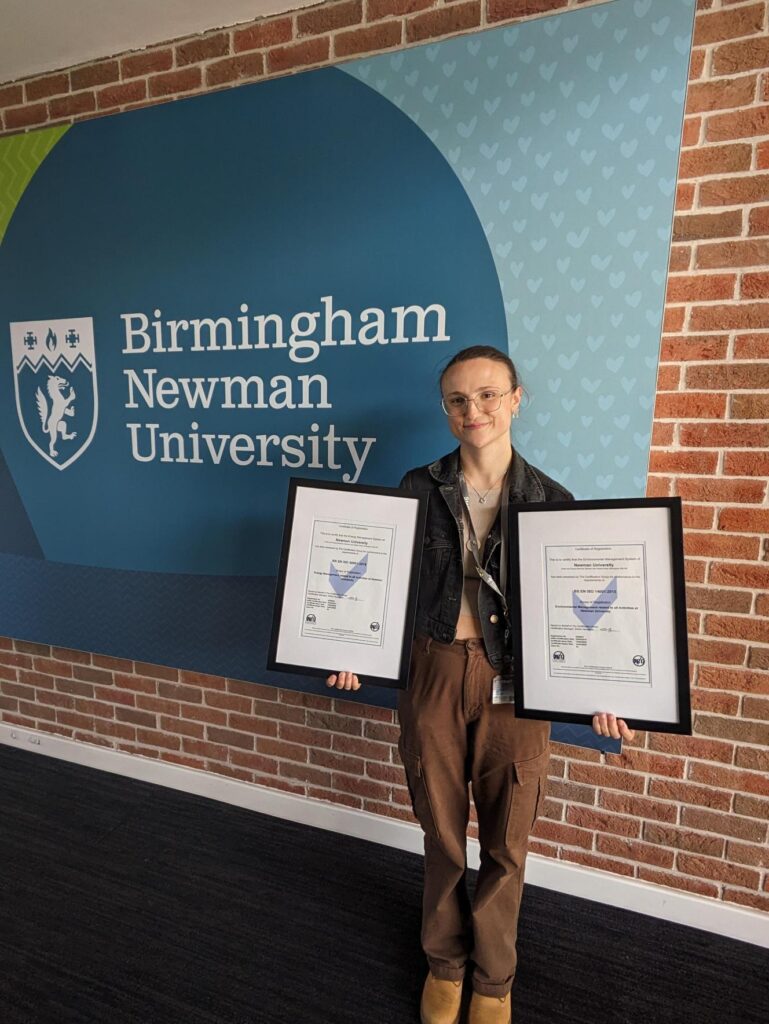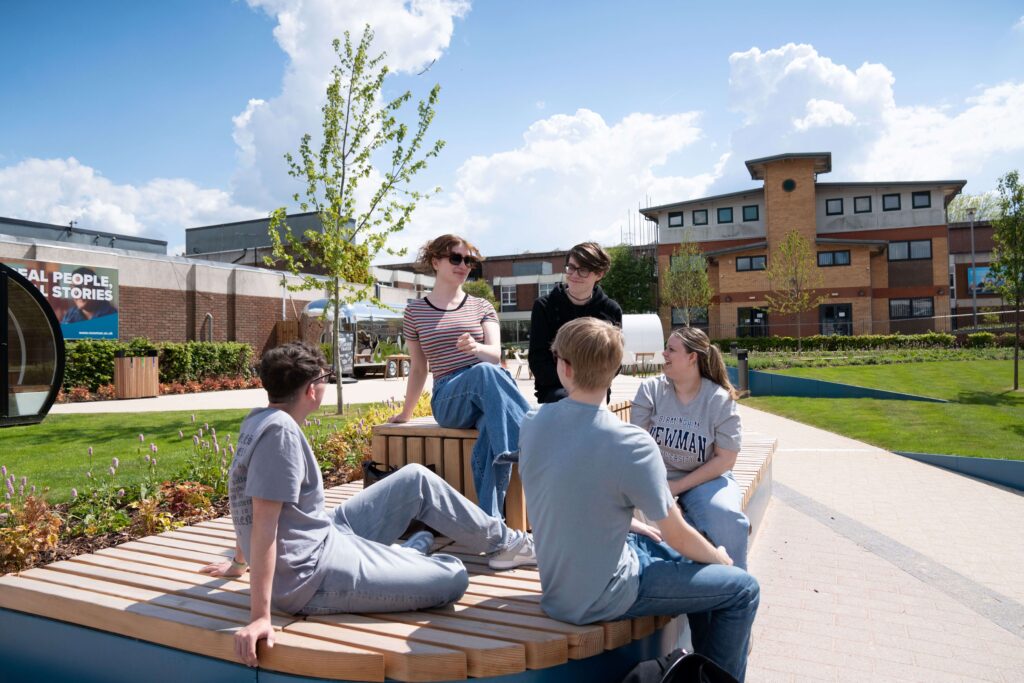Birmingham Newman University Champions Sustainability with Landmark Achievements
Birmingham Newman University is proud to share a series of transformative sustainability milestones achieved during the last academic year.
This year, the University reached a remarkable milestone with carbon emissions now at their lowest level since the university was established in 1967. Solar PV arrays have prevented 47 tonnes of CO₂e from entering the atmosphere in the last academic year, equivalent to the annual emissions of 10 UK average households.
The University continues to expand solar capacity on campus with a target of adding 30 kW each year.
These installations form part of an ongoing effort to increase renewable energy use and reduce reliance on non-renewable sources.
Once overlooked, the on-campus greenhouse has been lovingly restored into a vibrant, productive space for students and staff. Over the past two years, it has blossomed into a hub of sustainable food production and biodiversity. Many fruits and vegetables are now grown on site and used in the university’s catering outlets.

Raised beds are filled with compost made from campus food waste and coffee grounds.
This project has been submitted for a Green Gown Award, recognising its impact on community engagement, food sustainability, and biodiversity.
With a £600,000 investment, the Ryland Quad, located at the heart of campus, has been transformed into a welcoming green space. Featuring native plants, new trees, external study pods, and outdoor seating, it serves as a sanctuary for study, relaxation, and connection with nature.


Lucy Clarke, MSc, Environmental Advisor at Birmingham Newman University, said: “We’ve made incredible progress this year, from slashing emissions to restoring our greenhouse and creating new green spaces. It’s inspiring to see how staff and students have embraced sustainability. We’re seeing more pollinators, more engagement, and even ducklings on campus! It’s a joy to witness the impact of our collective efforts.”
For the sixth consecutive year, the university has retained its ISO 14001:2015 and ISO 50001:2018 certifications, reaffirming its leadership in environmental and energy management. The March 2025 audit reviewed the university’s environmental policies and initiatives across campus.
These efforts align with the university’s broader goal to reach net zero by 2035.
